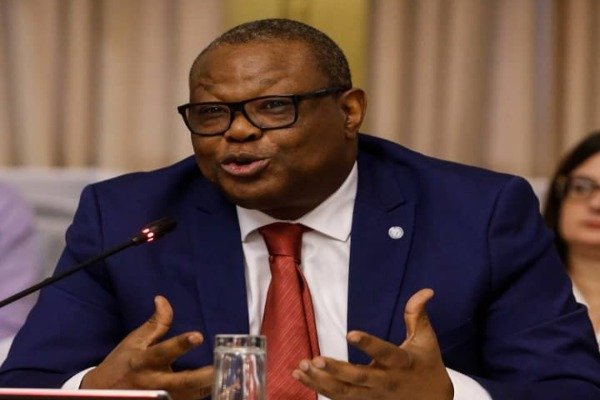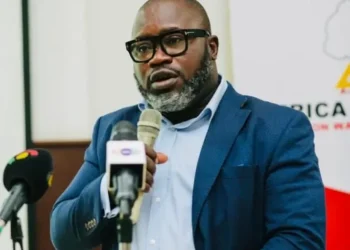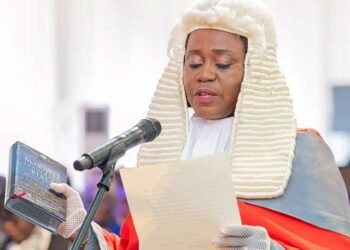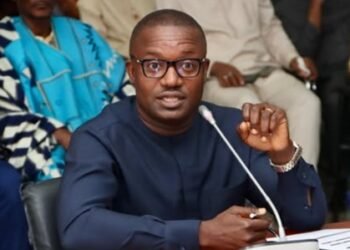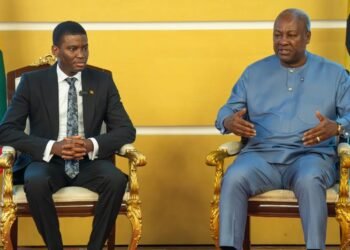A respected peacebuilding expert and co-founder of the West Africa Network for Peacebuilding (WANEP), Emmanuel Habuka Bombande has strongly defended Ghana’s current position on the Israel-Palestine conflict, dismissing criticisms from the Minority in Parliament as misplaced and unfounded.
Mr Bombande, who is also Ghana’s former Deputy Foreign Affairs Minister and a former Senior Mediation Adviser at the United Nations, argued that Ghana’s decision to stand firmly against atrocities and genocide is both morally and historically consistent with the country’s values.
His remarks follow a statement from the Minority in Parliament urging the Mahama government to exercise caution in commenting on sensitive international conflicts such as the ongoing war in Gaza. The Minority’s Ranking Member on Foreign Affairs, Hon. Samuel Abu Jinapor, had raised concerns that Ghana’s posture could undermine its diplomatic balance and international relations.
Mr Bombande, however, described such concerns as unconvincing. In a sharply worded response, he challenged the Minority to clarify their position to the Ghanaian people.
“Dear Hon Ranking Member of Foreign Affairs of Parliament, Abu Jinapor, please come back and explain to the people of Ghana exactly what you mean by your statement”.
Emmanuel Habuka Bombande
He stressed that Ghana could not afford to remain neutral in the face of atrocities, systematic oppression, and what he described as “daily gross violations of human dignity and rights” in Gaza.
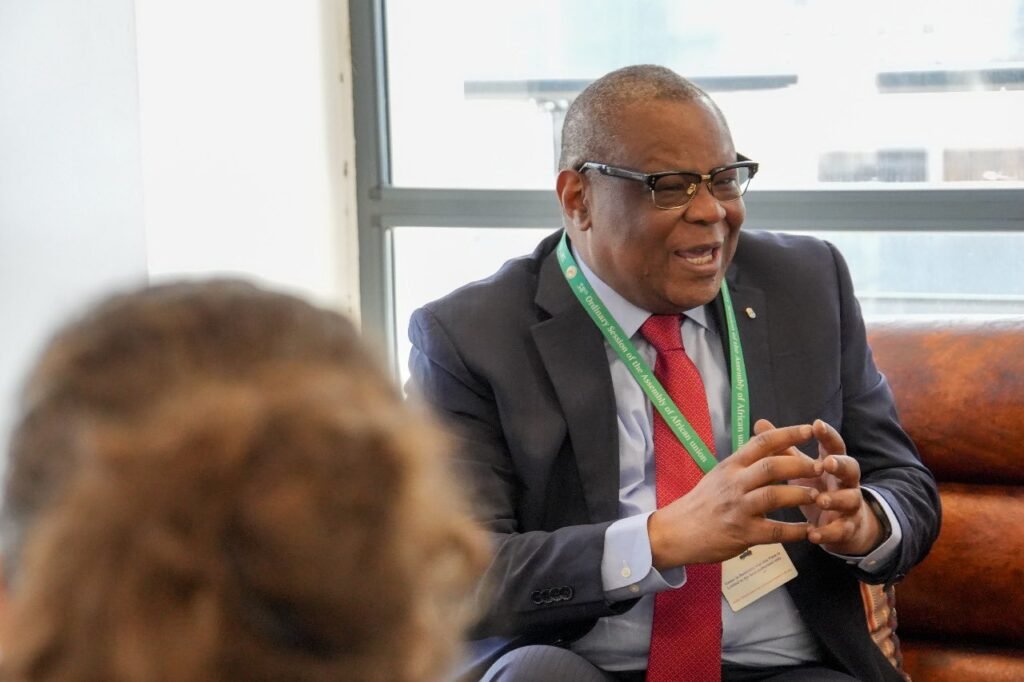
“In the face of atrocities, genocide, and the oppression of the People of Palestine, which is at the root of internecine violence in Gaza, Ghana cannot be indifferent. So, Ghana is amongst more than 155 countries across the world standing firm and in solidarity with the people of Palestine, for justice, for fairness and for the respect of their Human Rights”.
Emmanuel Habuka Bombande
Upholding Liberation and Justice
The former Deputy Foreign Affairs Minister questioned whether the Minority would have taken a different path if they were in government.
“Are you suggesting that Ghana should take a different position? Would you in Government, have taken a different position?” he asked, underscoring the moral responsibility Ghana bears as a country with a proud history of championing liberation and justice.
Referencing Ghana’s legacy as the “Black Star of Africa,” Mr Bombande insisted that the country must continue to uphold its role as a voice of conscience on the international stage.
“Are you suggesting that Ghana, the Black Star of Africa and the catalyst for the Liberation and Independence of African States should be spineless on such a crucial international conflict in which there is a daily gross violation of the human dignity and rights of the people in Gaza who are now being starved to death? You need to come back and explain exactly what you mean”.
Emmanuel Habuka Bombande
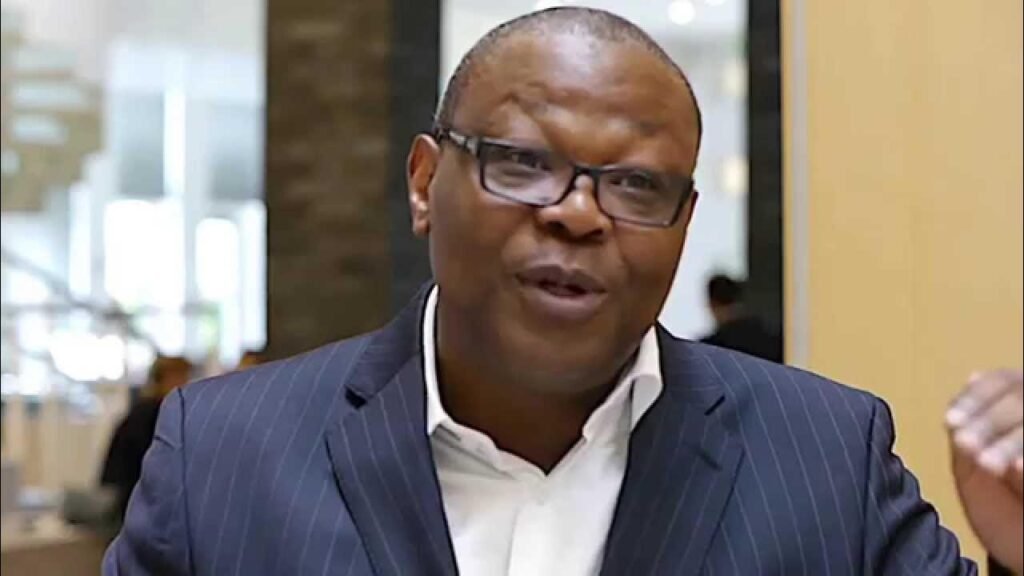
His defense of Ghana’s foreign policy stance comes at a time when the humanitarian crisis in Gaza has drawn global condemnation. Reports of widespread civilian casualties, destruction of infrastructure, and growing food insecurity have intensified calls for international action.
For Mr Bombande, Ghana’s position is not only a matter of foreign policy but a moral obligation rooted in its history of supporting oppressed peoples across the world.
Ghana’s alignment with over 155 countries in supporting Palestinian rights reflects a broader global consensus demanding justice and an end to the conflict’s human toll. Mr Bombande emphasized that solidarity with Palestine does not imply hostility towards Israel, but rather a principled stand against genocide, starvation, and the denial of basic human rights.
His intervention is also seen as a caution against politicizing Ghana’s foreign policy, especially on issues that touch on universal human rights and justice. By calling out the Minority, Mr Bombande sought to remind political leaders that the country’s international posture must rise above partisan interests and reflect Ghana’s enduring values of fairness, justice, and dignity for all peoples.
The debate over Ghana’s stance on the Israel-Palestine conflict underscores the delicate balance small states often navigate in international diplomacy.
While critics worry about potential diplomatic consequences, supporters of the government’s position argue that Ghana’s credibility as a global moral leader depends on speaking out against oppression and injustice wherever they occur.
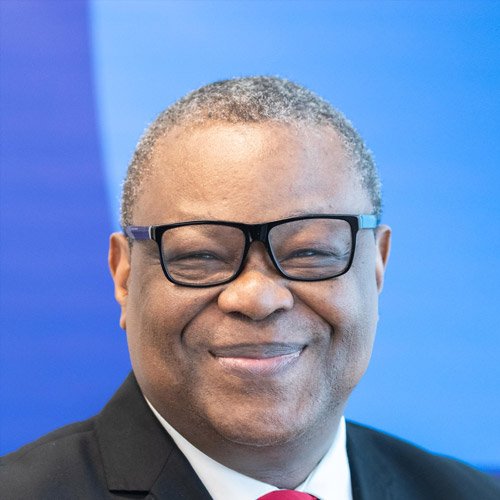
Mr Bombande’s remarks underscored the principles guiding Ghana’s foreign policy, not only under the Mahama administration. His defense suggests that Ghana’s position is not a departure from established practice but a reaffirmation of its historic role as a champion of oppressed peoples.
For many such as Mr Bombade, Ghana can not remain silent in the face of genocide and gross human rights violations, even if doing so attracts criticism from political opponents at home.
READ ALSO: Iran Vows to Keep Oil Exports to China Despite Threat of U.N. Sanctions



